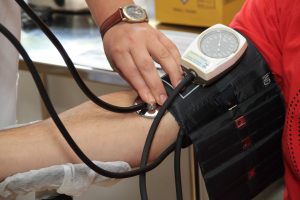This website uses cookies, including third party ones, to allow for analysis of how people use our website in order to improve your experience and our services. By continuing to use our website, you agree to the use of such cookies. Click here for more information on our and .
In the lead-up our inaugural Improving the Patient Experience Conference we spoke with Dr Aline Nassar, Executive Healthcare Consultant and Former Director of Health Affairs of the UAE to discuss her work and what professionalism means in a healthcare setting.
Can you tell me about your current role as Executive Healthcare Consultant and your former role as Director of Health Affairs in the UAE?
As an Executive Healthcare Consultant, my role involves providing professional advice and support in numerous healthcare management fields to improve service efficiency and, hence, ROI.
professional advice and support in numerous healthcare management fields to improve service efficiency and, hence, ROI.
I bring along extended experience in strategy development and planning in hospital operations, business development/affiliations, compliance management, performance management, quality management and corporate professional development.
In my previous role as an Executive Director of Health Affairs, my role entailed Consultancy and Advisory to the business owners as well as being a member of the Executive Senior Management team. As a Senior Executive, I was responsible for Corporate Organizational Performance Development (inclusive of mentoring sub-performing departments), Corporate Business Development (establishing and leading National and International business, clinical and educational affiliations) and leading negotiations with National and International Governing/ Governmental bodies and stakeholders.
Why is professionalism so vital to the patient experience?
Professionalism is the etiquette of doing your work correctly and in a timely fashion. Intelligent professionals adopt this approach as the foundation to service delivery… and, we all know, health care is all about service delivery.
Since the service delivery in healthcare moved on to “shared” decision making, patients expect, and are entitled to, making choices based on the benefits and risks of care that best promote their values and beliefs.
Therefore, as health care professionals, the fundamentals of our practice need to be based on the predominance of the patients’ well-being and their right to timely access optimum care.
Consequently, to be successful in providing optimum patient experience, we are compelled to commit to professionalism summarized by competence, responsibility, honesty, respect and absolute confidentiality.
Accomplished professionalism ensures earning “the” appropriate trust relationship with the patient leading to improved “quality of patient experience”.
“They may forget your name, but they will never forget how you made them feel” – Dr Maya Angelou
What are some of the key mistakes that healthcare workers make in regards to this?
We all like to agree that no one deliberately makes mistakes, but what’s crucial is to learn from slips if they happen.
 I, personally, choose to call mistakes “pitfalls”, since they can be avoided.
I, personally, choose to call mistakes “pitfalls”, since they can be avoided.
In the patient’s journey, pitfalls are prone to happen in the absence of caution. Caution needs to be observed starting the very first “point of contact”.
When you are the first point of contact, remember to avoid a detrimental pitfall by making sure to come across as courteous, competent and caring. Any oversight at this stage could prevent you from setting a solid cornerstone to the patient’s experience.
Additionally, and more importantly, deal with your patient as a unique individual, not a file number, a room number or a case. Patients expect to have an identity when under your care!
Give the patient the time needed, listen to and hear them; take your time, do not take short cuts and do not rush. Short cuts and rushing always result in pitfalls, which will take longer to damage control!
Communicate effectively with patients by confirming what they said and ensuring they understood what was communicated to them. Be proactive, attend to every detail, act swiftly and ensure you obtain help as you require.
Remember to furnish your approach with empathy that is the soothing mechanism for handling patients.
How can healthcare workers ensure a professional environment for their patients?
“You cannot give what you do not have”
Be a leader and lead your role!
Regardless of the position title, successful healthcare workers should be the leaders of their assigned role. Job descriptions and performance expectations are set as standards, yet performing the role is lead by the individual. Each and every healthcare employee is the ultimate driver of the patient experience, so drive safely and confidently.
Ensure exhibiting the “know how” when doing, the proficiency when achieving and the empathy when caring.
They say “Patients don’t care how much you know until they know how much you care”; I say “Patients care how much you know and want to experience how much you care”.
Which presentations are you looking forward to seeing at the Improving the Patient Experience Conference and why?
I look forward to all the presentations at the conference, as the selected topics emerge to cover most of the significant aspects that influence a patient’s journey and experience.
I am certain that the presentations by the eminent speakers, who bring along diverse experience and knowledge, will be insightful.
In addition to that, I am so much looking forward to the panel discussions. Discussion forums abundantly remain the core of educational meetings, as they create a prospect to debate literature, experiences and views.
Dr Aline Nassar will be discussing healthcare professionalism at the Improving the Patient Experience Conference. For more information, including our current agenda, please head to our website.

